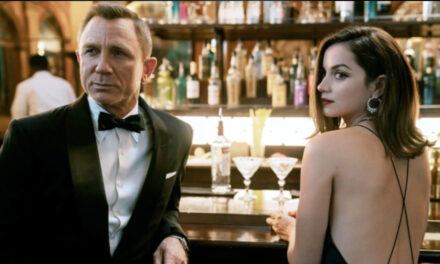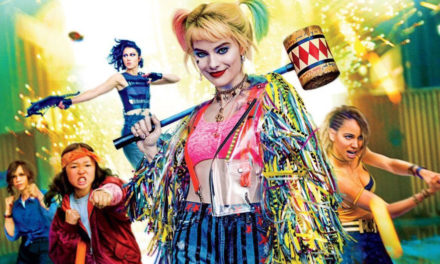
On the surface it would appear that it’s just another stab, no pun intended, at a genre already perfected by one of the greatest living film directors. And yet Martin Scorsese’s much anticipated reentry into gangster territory both is and isn’t a return to form for the master cinematic craftsman. Yes, this film does have some of the elements we’ve come to expect from these types of things but it’s also different in many ways. It’s contemplative and reflective in a way the somewhat similar entries Casino and Goodfellas are not. Perhaps it’s a sign of the director’s state of mind since, after all, he is nearing his ninth decade. If it is indeed Scorsese’s final statement on the type of film he helped to usher into our modern culture there are worse ways to accomplish that feat.

Joe Pesci, Robert De Niro and Al Pacino in The Irishman
The Irishman is the supposedly true story of Frank Sheeran. The film opens with Sheeran (Robert De Niro), now in a rest home, reflecting on a life spent working as a hit man for the Bufalino crime syndicate through the biggest part of the twentieth century. After a military stint during WW II, Sheeran falls into a life working for Russell Bufalino (Joe Pesci and never better) that eventually takes him into a close personal relationship with the legendary Teamsters Union head, Jimmy Hoffa (Al Pacino, also turning in some of his best work in years). Trouble rears its head when Hoffa’s arrogance starts to cloud his judgment and Sheeran is called in to take care of the problem.
The biggest issue with The Irishman is its run time. At three hours twenty-nine minutes it begins to feel its length during the home stretch and it could stand more than a little judicious trimming. Still, there so many great moments contained therein it’s hard to quibble. Scorsese has once again given us a film that’s likely to be talked about for a long time to come.
The Irishman is available on Netflix.
Questions or comments? [email protected]









